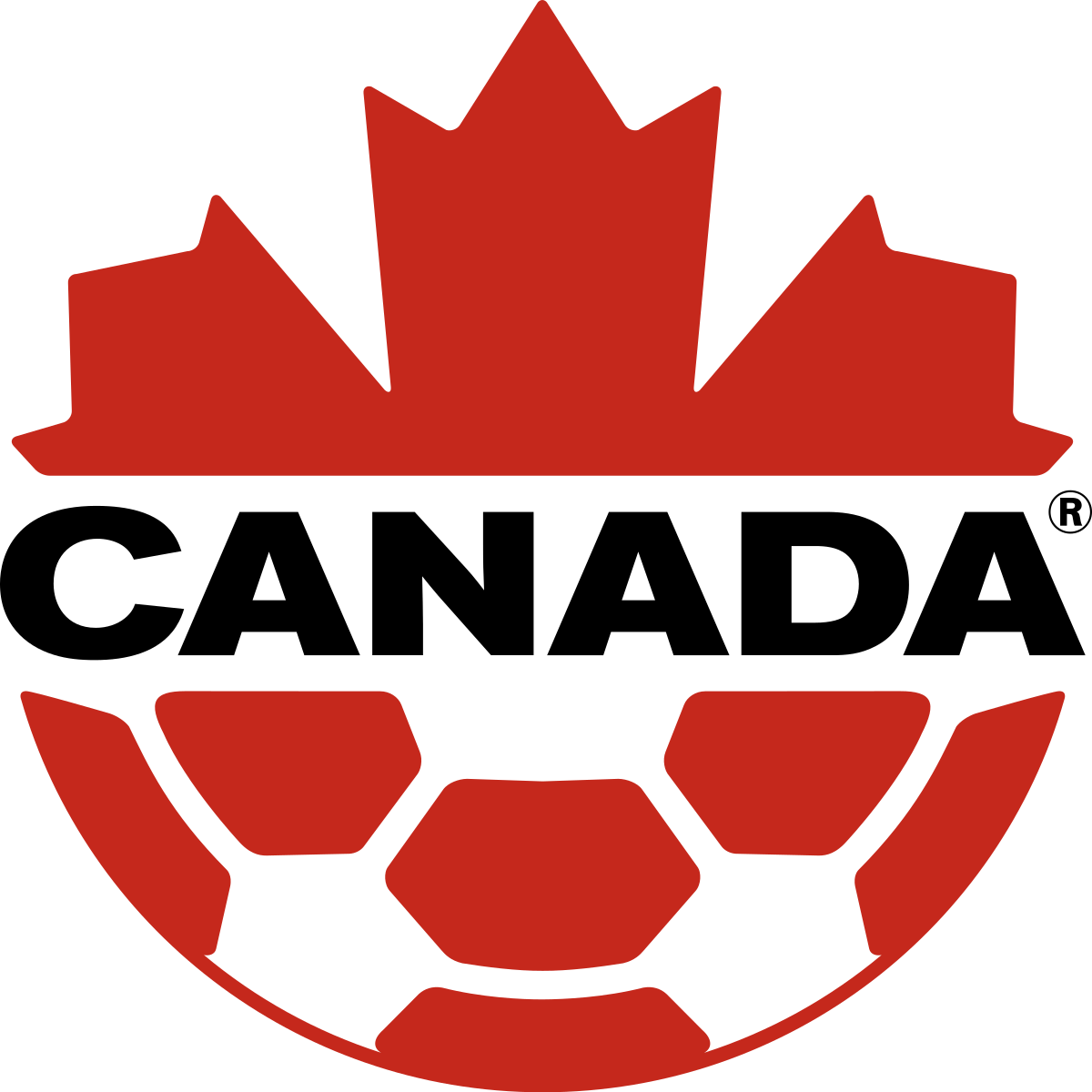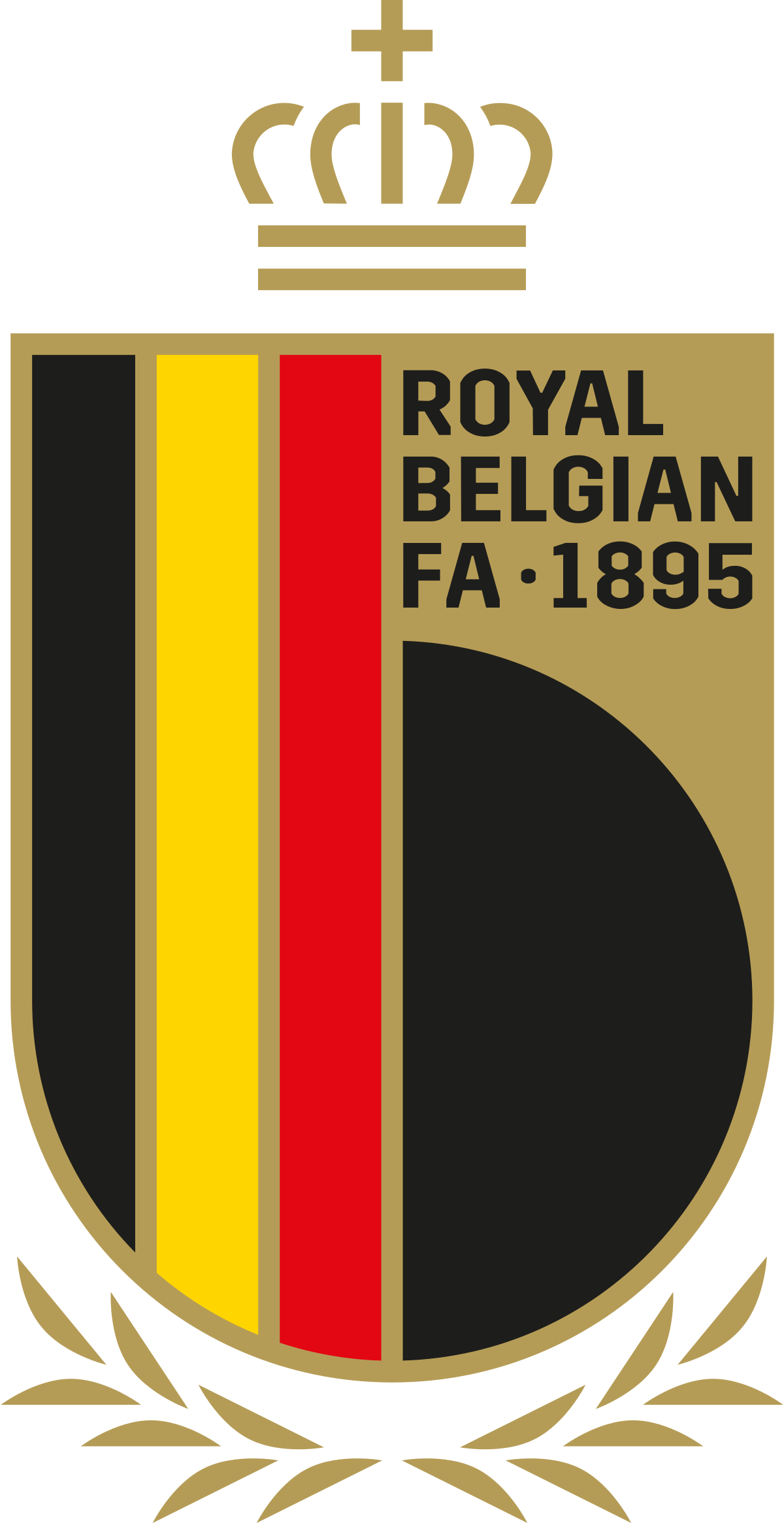
Canada (The Maple Leafs)
Group Stage: 1 (1986)
Current FIFA Ranking: 41
Alphonso Davies
Read More
Jonathan David
Read More
Stephen Eustaquio
Read More
John Herdman
Read More
Group F Schedule
Game 1 – Wednesday 23rd November 2022

Belgium
22:00 Qatar Time/19:00 GMT
Ahmad bin Ali Stadium, Al Rayyan
Game 2 – Sunday 27th November 2022

Croatia
19:00 Qatar Time/16:00 GMT
Khalifa International Stadium, Al Rayyan
Game 3 – Thursday 1st December 2022

Morocco
18:00 Qatar Time/15:00 GMT
Al Thumama Stadium, Doha
Notable Honours
Canada have twice won the CONCACAF Championship/Gold Cup, in 1985 and 2000. They can also count the Summer Olympics of 1904 as they sent a representative team to St. Louis to compete against two American sides.
Beginnings
Throughout the late 19th century, Canada was playing competitive yet unofficial internationals under the guise of the Dominion Football Association (1877) and the Western Football Association (1880), both precursors to the modern-day Canadian Soccer Association (CSA). Their first unofficial international friendly was played in 1885 in East Newark, New Jersey. It was against a side put together by the forerunners to the American governing body, the American Football Association. A 1-0 win for Canada was followed by a 3-2 win for the United States in the return fixture a year later. A WFA tour of the British Isles was to follow, with the Canadians emerging with a creditable record of nine wins, five draws and nine defeats.
As mentioned above, Canada sent a representative team to the 1904 Summer Olympic Games in St. Louis in the form of Galt F.C. to compete against two American teams. They defeated both – Christian Brothers College and St. Rose – 7-0 and 4-0, respectively, to win gold. Canada refused to enter further Olympic competitions as other nations were to establish truly national teams as a result of the popularity of the domestic game in those countries. Hence, in the absence of organised international competitions, Canada’s involvement in international football was to be limited to friendlies and tours. In 1928, Canada followed the lead of the British football associations and left FIFA. This precluded them from any potential involvement in World Cups, whether by invitation or qualification.
World Cup Qualification Failures
Canada briefly re-joined the international scene in 1957 in an attempt to qualify for the 1958 World Cup in Sweden. Despite a winning start in which Canada trounced rivals and neighbours the USA 5-1, poor association finances dictated that Canada would play both games against Mexico away from home. 2-0 and 3-0 defeats followed before a 3-2 win in St. Louis over the Americans provided some consolation but ultimately not a World Cup tournament berth. The Canadians withdrew from World Cup qualification in 1962 and failed to enter a team for qualification in 1966. Canada was to make a second attempt at World Cup qualification for the 1970 tournament held in Mexico. Canada’s failure to qualify ultimately resulted from a shock 0-0 draw against Bermuda. With one win and one defeat against the USA, the Americans defeated Bermuda twice, which made all the difference.
In what was surely a casualty of regional scheduling, Canada failed to make the 1974 World Cup or even make the CONCACAF Championship. This was owing to the requirement to top a regional North American qualifying group containing Mexico and the United States. With the requirements now relaxed a little in preparation for the 1977 CONCACAF Championship/1978 World Cup qualifying group (de facto), Canada seized their opportunity. They qualified as North American Zone runners-up courtesy of a 3-0 play-off win in neutral Haiti over the United States. Both sides finished level on points and goal difference in the group, hence the play-off. In the end, with CONCACAF only assigned one qualification spot, Mexico made the tournament in Argentina at a canter, winning all five matches.
Qualification for Mexico in 1986
In a very tight North American Zone, once again, Canada earned themselves a chance at qualifying for the 1982 edition of the World Cup in Spain, again at the United States’ expense. Sadly though, Canada were not able to capitalise and, somewhat surprisingly, neither were Mexico. With two spots up for grabs this time due to the expansion of the World Cup to 24 teams, Honduras and El Salvador were to represent CONCACAF. With Mexico hosting the 1986 edition of the World Cup, qualification became a little easier, and Canada took full advantage. The Canadians emerged from the final group stage undefeated. In their last qualification match, they beat Honduras 2-1 in the crucial group decider.
While Canada in no way disgraced themselves in Mexico, perhaps they found the step up prohibitive. Indeed, they failed to register a point or score a goal in a strong group containing the Soviet Union, France, and Hungary. Under the leadership of Englishman Tony Waiters, it took the French 79 minutes to find the net through striker Jean-Pierre Papin. Canada then lost both games to Hungary and the Soviet Union by a 2-0 scoreline. Unfortunately, Canada could not repeat the trick in 1990, failing to progress through their qualifying match for the 1989 CONCACAF tournament in losing to Guatemala on away goals (3-3 aggregate).
Further World Cup Qualification Failures and Triumph at the Gold Cup
In 1994, Canada finished as runners-up to Mexico in an attempt to qualify for USA ’94. They were drawn in the first round of the inter-confederation play-off against Australia to determine who would face World Cup runners-up Argentina. Following a 2-1 home victory courtesy of goals from Mark Watson and Domenic Mobilio, Canada lost the return leg by the same scoreline, and it came down to penalties, with the Australians winning 4-1. Canada performed dismally in their attempt to qualify for France ’98. Their opening two fixtures against Mexico and the United States produced seven opposition goals without reply. With the Canadians playing out two goalless draws against Jamaica and El Salvador at home, there was virtually no chance of qualification. In the end, Canada finished bottom of the group with a minus 15 goal difference and just one win from 10 matches.
Canada’s subsequent performance at the 2000 Gold Cup in the United States under new high-profile German manager Holger Osieck can be characterised as somewhat surprising, if not shocking. Somewhat cruelly, following three draws in the three-team group and Costa Rica qualifying in first place due to goals scored, Canada progressed at South Korea’s expense via a coin toss! Perhaps the organisers regret that one. In any event, Canada stunned tournament favourites Mexico in the quarter-finals, coming from 1-0 down to emerge with a 2-1 victory thanks to 83rd and 92nd-minute goals from Carlo Corazzin and Richard Hastings. A second-half Mark Watson strike was enough to ensure Canada reached their second Gold Cup final (1985’s CONCACAF Cup was an earlier iteration which doubled as qualification for the 1986 World Cup). Canada’s good form continued as they defeated guest nation Colombia in the final 2-0, courtesy of finishes from Corazzin and Jason De Vos. Corazzin finished the tournament as the top scorer with four goals. West Ham United Goalkeeper Craig Forrest was named as tournament ‘MVP’ while Hastings won ‘Rookie of the Tournament’.
More Disappointment and Current Resurgence
Despite their impressive Gold Cup showing, the Canadians were hugely disappointing in their 2002 World Cup qualification campaign. In the penultimate group stage, Canada scored just one goal in six matches in a 1-0 victory over group stragglers Panama and suffered an embarrassing 4-0 defeat at the hands of Trinidad and Tobago. Another qualification failure, this time under the guidance of former captain Frank Yallop, was to follow in the form of a last-place finish in the semi-final group stage behind Costa Rica, Guatemala, and Honduras in 2006. This was the fifth World Cup in a row that the Canadians had failed to qualify for, and they exited the 2010 qualification semi-final group stage without a win to make it six. In 2014 Canada, once again, failed to make the final group stage for CONCACAF qualification. As a result of repeated qualification failures, Benito Floro, formerly of Real Madrid and Villarreal, was brought in to oversee a transitional period and overhaul the squad and the setup itself. This period proved to be a painful one but necessary for the long-term health of Canadian football.
Failure to qualify for the final group stage saw Canada and Floro mutually part company, with his replacement Octavio Zambrano lasting just nine months. Canadian women’s team manager, Englishman John Herdman, was hired to perform a hybrid role in the national setup. His role was to be both head coach and national director responsible for Canada’s teams from age 14 and upwards. In 2021, due to a marked improvement in fortunes, Canada was designated as FIFA’s most improved side for 2021. Indeed, Herdman led the Canadians to a highly impressive first-place finish in the newly formed Octagonal final group qualifying format. Canada will now be present for only the second time at a World Cup finals tournament in Qatar. Drawn into a difficult group with Belgium, Croatia, and Morocco, they will hope to make an impression.
Road to Qualification
Group Position: 1st (final group)
Record: Played:14 W:8 D:4 L:2 F:23 A:7 GD:+16 Points:28
Going unbeaten at home, including victories over Mexico and the USA, the Canadians won seven of their last nine games (including a loss in a dead rubber match against Panama). Hence, they won the Octagonal final group stage and progressed in style to their second-ever World Cup finals. Club Brugge striker Cyle Larin led the way with six goals, with Lille star Jonathan David finding the net five times. As Canada were unseeded prior to qualification, they also had to navigate a second-round group. However, they did so in embarrassingly easy fashion, scoring 27 goals and conceding just one over four group games against Suriname, Bermuda, Aruba and the Cayman Islands. Canada faced Haiti in a play-off to reach the final group, easing through 4-0 on aggregate.
Meet the Coach: John Herdman (age 47)
Following a spell as a development coach for Sunderland’s youth academy, Herdman moved to New Zealand in 2001 and joined the national association football programme in 2003, initially acting as Coach Education Manager and later as the Director of Football Development. Following a move to Canada and a spell with the women’s national team, Herdman was brought in to perform a hybrid role in the national setup as both head coach and national director responsible for Canada’s teams from age 14 and upwards. Herdman has presided over a transformation of Canadian football’s fortunes, leading them to be named most improved team of 2021 by FIFA and qualifying for the World Cup for the first time in 36 years.
Possible Starting XI and Style of Play

Recent friendly matches with Qatar and Uruguay have seen Canada trial a back 3, possibly in anticipation of tougher opponents at the World Cup compared to CONCACAF qualification. Veteran Atiba Hutchinson and Stephen Eustaquio will screen the back three, with Richie Laryea and Sam Adekugbe providing width from wing-back. Of Much conjecture is the usage of Bayern Munich’s Alphonso Davies, who plays as a fullback/wing-back for his club but could be deployed in a far more advanced role for the Canadians to utilise his talents fully. The opportunity of a link-up with Lille’s Jonathan David is perhaps too good to pass up. It could be the case that Davies is employed either as a number 10 or a winger. Canada were impressive in qualification, but as this is a step up, they might adopt a uniformly more cautious approach.
Squad List
Goalkeepers: James Pantemis, Milan Borjan, Dayne St. Clair
Defenders: Samuel Adekugbe, Joel Waterman, Alistair Johnston, Richie Laryea, Kamal Miller, Steven Vitoria, Derek Cornelius
Midfielders: Liam Fraser, Ismael Kone, Mark-Anthony Kaye, David Wotherspoon, Jonathan Osorio, Atiba Hutchinson, Stephen Eustaquio, Samuel Piette
Forwards: Tajon Buchanan, Liam Millar, Lucas Cavallini, Ike Ugbo, Junior Hoilett, Jonathan David, Cyle Larin, Alphonso Davies
Key Players
Alphonso Davies
Date and Place of Birth: (02.11.2000, Buduburam, Ghana)
Current Club: Bayern Munich
Caps/Goals: 34/12
Davies was born in Ghana and lived in Liberia, but emigrated to Canada with his family in 2005. Having come through at Vancouver Whitecaps, European giants Bayern Munich signed him in 2018. At Bayern, he has been fantastic, generally playing as an explosive and attacking left-back. Indeed, his pace, technical ability, dribbling, and crossing have earned rave reviews in the media. He became the first Canadian player to win the UEFA Champions League in 2020. As stated above, Herdman might look to play Davies further forward and more centrally to take advantage of his talents. Canada do not possess the embarrassment of riches that Bayern do, so getting Davies closer to Jonathan David could prove very fruitful for them.
Jonathan David
Date and Place of Birth: (14.01.2000, New York, United States)
Current Club: Lille
Caps/Goals: 34/22
Born in New York, David’s family moved to Canada when he was young. After coming through the Canadian youth system, David moved to Gent in 2018. He proved his goalscoring ability in Belgium, scoring 37 goals in 83 appearances over two years. In 2020 he transferred to Lille in France, where he has registered a very impressive 41 goals in 110 appearances. He also has an excellent record for Canada, netting 22 goals in 34 appearances. Clearly, David knows where the goal is. He can play as either a second striker or the main centre-forward and is known for his pace, dribbling, shooting, and pressing ability. The latter will be especially vital in Qatar, as Canada are up against three technically gifted teams all adept at playing themselves out of trouble. David hopes to link up with Davies and the other attackers to make a name for himself on the biggest stage.
Stephen Eustaquio
Date and Place of Birth: (21.12.1996, Leamington, Ontario)
Current Club: FC Porto
Caps/Goals: 26/3
Eustaquio was born in Canada to Portuguese parents, but the family moved back to Portugal when he was 7. His youth career took place in Portugal; then, he had spells in senior football in Portugal and Mexico. He was eligible to play for Portugal and Canada but chose the latter. Now at Portuguese giants Porto, he hopes to take the next step in his career. A strong and aggressive defensive midfielder, Eustaquio is known for his intelligent play, passing and tough tackling. The latter might be a problem, as he has collected 35 yellow cards and 2 second yellow cards in 164 appearances at club level. However, he is an industrious player at the heart of Canada’s midfield and was instrumental in qualifying. Herdman will trust him in Qatar.
